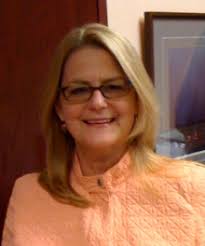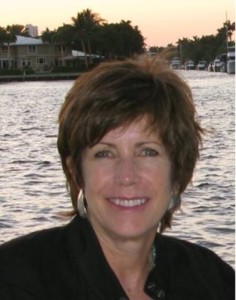Note from the Editor: FLAFCC recognizes the complex scholastic history of parenting plan evaluations (child custody evaluations). Specifically, there continues to be debate over the appropriate use of psychological testing within the context of parenting evaluations. The following article is published to further the discussion and awareness of the limitations of psychological testing within parenting evaluations and offers the author’s views and opinions regarding the continued use of psychometric instruments in parenting evaluations.
By: Benjamin D. Garber, Ph.D. and Robert A. Simon, Ph.D.
And then there’s the story about the woman who showed up in the hospital emergency room barefoot, with bloody blisters on both feet, carrying a stunning pair of Italian leather, stiletto heels. Her wounds matched precisely the lines and curves of the footwear which was obviously too small for her feet. No one bothered to ask why she had worn the torturous apparel. It was clear that she valued form far more than function.
So it is with many Parenting Plan Evaluations. Individual adult psychometric instruments (tests for the sake of this article) add an intimidating sheen of quantitative science but seldom add real, reliable, and valid value to the effort to understand and serve the needs of one or more particular children. Worse, tests can create expensive and time-consuming strawmen that distract the court and consume its very limited resources to the detriment of all.
What is a Parenting Plan Evaluation (PPE)?
PPE is an empirically driven, child-centered examination of the family system. It serves to provide the court with an understanding of how best to understand the unique needs of each child. Contemporary standards and guidelines relevant to the conduct of PPE call for the evaluator to employ multiple and diverse methods so as to consider, alternative plausible hypotheses. (e.g., AAML, 2011, item 4.3[a]; see also AFCC 2006, item 5.4; APA, 2010, item 10). In practice, survey data find that evaluators commonly include individual adult and child interviews, individual, dyadic, and/or systemic observations, a review of relevant historical documents, personal references, and individual adult psychometric testing. In fact, surveys spanning the last twenty years find that more than nine out of ten custody evaluators include individual adult psychometric tests in PPEs.
What are Individual Adult Psychometric Instruments (tests) in the Context of a Parenting Plan Evaluation?
The field of psychometric assessment is a thriving commercial industry. The chief compendium of psychological tests includes reviews of over ten thousand instruments. Although the purpose, nature, means of administration, process of interpretation, reliability, and validity of these instruments vary immensely, they all share certain qualities:
- Norms. The American Psychological Association (APA) explicitly requires that psychologists must, use assessment instruments whose validity and reliability have been established for use with members of the population tested. (APA, 2010, principle 9.02[b]). None of the tests commonly administered in the context of custody evaluation meets this criterion. For example, the Millon Clinical Multiaxial Inventory – the second most commonly administered test among custody evaluators – is normed, entirely on clinical samples. (Millon and Bloom, 2008, p. 76).
- Reliability. Test data are meaningless until they have been shown to be stable across time, contexts and/or administrators. Given that the stresses of custody litigation can be acute and intense, it remains to be seen whether a test could demonstrate reliability across the period before, during and after litigation.
- Validity. Even given a properly normed and reliable instrument, professionals who conduct PPEs are still faced with the mountainous problem of criterion validity. That is, if the criterion against which a test is to be validated is the best interests of the child, but this criterion cannot be generically defined, then the task would appear to be impossible.
Testing as Hypothesis-Generation and Bias-Checking
The debate among professionals about the use of tests in PPEs can become almost as intense as the conflict between the parents we are tasked to assess. Some professionals take the position that testing is a necessary component of an adequate PPE. There are those who recognize the limitations of the use of tests in PPEs and their associated potential to do harm. The most common rationale takes a middle road, recommending the use of tests to generate alternate hypotheses which then must be subjected to verification.
We recognize the invisible and invasive effects of confirmatory bias. We take this as the rationale behind the mandate to incorporate multiple and diverse methods. Used properly, data obtained via methods including, but not limited to, third-party references, historical records, interviews, and direct observations should help assure that conclusions are reached only when there is data convergence. This is because one is far more likely to be accurate and form opinions free from various cognitive biases (such as confirmatory bias) when looking at converging data rather than a single data point since unitary data points are far more likely to result in inaccurate and biased inferences and conclusions.
Testing, PPEs, and Diagnosis
While Florida Statutes 61.13(g) indicates that the mental and physical health of the parents is considered in determining the best interest of the child, PPEs are explicitly not intended to generate individual adult psychiatric diagnoses (AFCC, 2006, item 4.6[c]). This is in part because psychiatric diagnoses have no clear meaning for parenting or co-parenting capacity. This is not to say that a PPE cannot portray and describe the mental health and mental status of the parents and children. However, diagnosis, per se, has no demonstrated empirical nexus to parenting. Moreover, when PPEs generate diagnoses via testing, custody litigation becomes a competition to identify the parent with more or worse labels who is thereby deemed unworthy of parenting. In short, diagnosis is the medical model’s individualistic, reductionistic and static picture of an individual. PPE is a dynamic, strength-based picture of a growing family system. While it is understood that in Florida, the evaluator must assess and comment upon the mental health of the parties, in the context of a PPE, one can do this by describing mental health functioning and personal strengths and weaknesses. Diagnosis, per se, is not implied, by definition, in conducting an assessment of the mental health of the parties.
Summary and Recommendations:
We believe that a logical, empirical, and statistically-informed analysis of the use of individual adult psychometric tests in parenting plan evaluations is sufficient to caution against the practice. These tests are often not appropriately normed, have yet to demonstrate reliability, and cannot demonstrate that the test is actually measuring what it purports to measure for inclusion in PPEs. They are not necessary to satisfy the criteria of practice standards, practice guidelines, or the UMDA. Above and beyond these technicalities, however, we posit that the variables assessed by these test instruments are not the variables that are fundamental in a parenting plan evaluation. Parenting plan evaluations are not about individuals. Parenting plan evaluations are first and foremost about family systems.
For now, we recommend that the best practice is to omit individual psychometric tests from parenting plan evaluations. We look forward to the development of forensically normed, reliable, and valid measures of systemic functioning. Unless and until such instruments are validated for use in PPEs, evaluators are cautioned that if the shoe doesn’t fit, don’t wear it.
This article is a brief digest of the forthcoming publication:
Garber, B.D. & Simon, R.A. (forthcoming 2018). Individual Adult Psychometric Testing and Child Custody Evaluations: If the Shoe Doesn’t Fit, Don’t Wear It. Journal of the American Academy of Matrimonial Lawyers, 30, ____.
Most citations have been omitted in the interest of brevity. These and related materials are available from the first author via www.FamilyLawConsulting.org.
 Benjamin D. Garber, Ph.D.
Benjamin D. Garber, Ph.D.
 Robert A. Simon, Ph.D.
Robert A. Simon, Ph.D.




![]()




 Benjamin D. Garber, Ph.D.
Benjamin D. Garber, Ph.D. Robert A. Simon, Ph.D.
Robert A. Simon, Ph.D.



